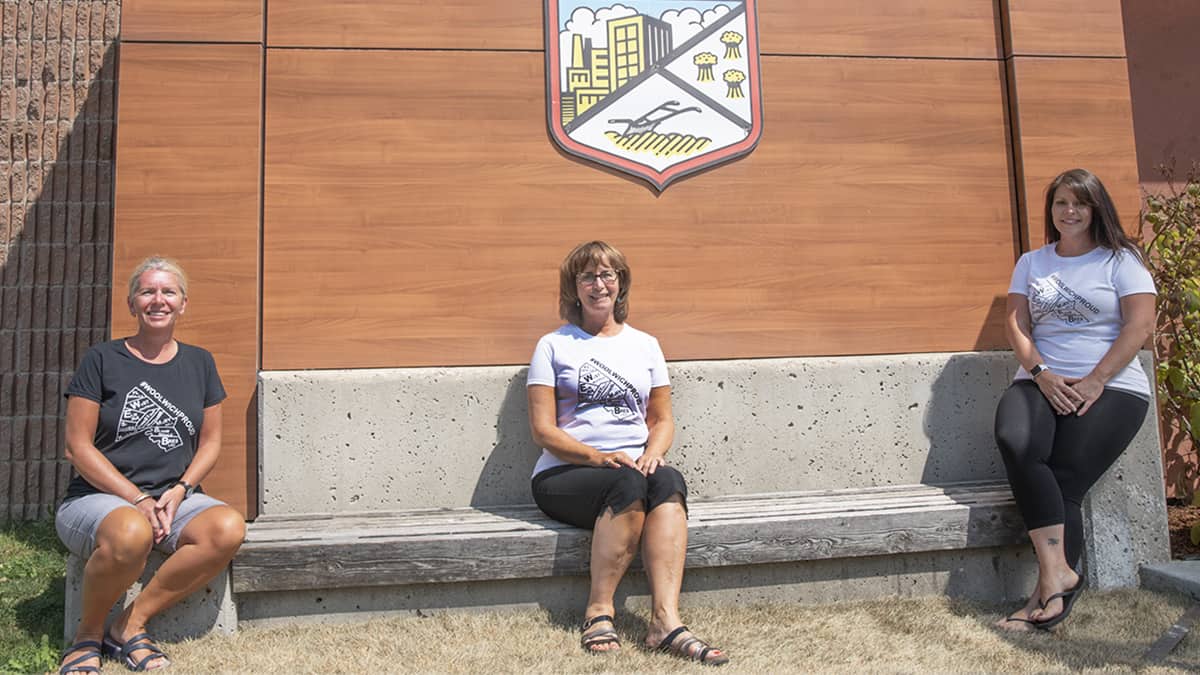While the number of COVID-19 cases has remained low for the past couple of months, health officials in Waterloo Region are bracing for an increase when school resumes in a couple of weeks.
Medical officer of health Dr. Hsiu-Li Wang says outbreaks are inevitable when kids head back to their classrooms after Labour Day.
“There will be more cases of COVID-19, and there will be more outbreaks,” she said in Public Health’s weekly video briefing Tuesday.
Wang urged residents to adhere to the established prevention measures to lower the transmission rate in any outbreak.
She also suggests setting routines for students to ensure a safe transition to a new school environment.
“There are some things that families can do now to feel more prepared such as adjust sleep schedules, practicing … your morning routine, including screening your child for symptoms, practicing proper hand hygiene, which I’m sure parents have been doing with their children, washing hands with soap and water scrubbing hands, including fingers wrists for at least 15 seconds, using hand sanitizer, again rubbing all over hands for at least 15 seconds. Practice putting on and taking off a mask and have your child wear it around the house so that they are more comfortable wearing it for longer periods of time. Practice no touch greetings to greet classmates and teachers. Talk to your kids explaining how their classrooms will look different. Talk to them about the importance of these new measures,” said Wang.
The region plans to monitor outbreaks in schools, posting numbers on its online dashboard, though the details are still being worked out.
There are currently two active outbreaks in the region, one at a long-term care facility in Cambridge – the region has been tracking those since the beginning – and another at a summer camp. Details of the latter are not being released due to privacy concerns.
“Camps can be relatively small in terms of numbers. And so, we want to make sure we can protect privacy,” said Wang, noting there was just one case reported, not enough to force a shutdown.
With schools reopening in time with the regular flu season, Wang strongly recommends people receive this year’s flu shot.
Given that COVID-19 and the flu show many of the same signs, Wang asks people experiencing symptoms of either to continue to stay at home and get tested. She also notes that COVID prevention practices will work in accordance with methods to slow the spread of the flu.
At midweek, there were 35 active cased of COVID-19 in the region. Of the 1,438 positive cases identified since the virus was first discovered in the area, 1,283 have been resolved, a clearance rate of 89 per cent. There have been 120 fatalities.
Of the 66,315 tests conducted in the region, the positivity rate is two per cent.
Neighbouring Wellington-Dufferin-Guelph Public Health reported 17 active cases, with the percentage of positive tests at 1.2.
That organization is also preparing for back-to-school scenarios.
“Safely reopening our schools is only possible if our entire community acts together to ensure the transmission rates of COVID-19 remain as low as possible in our region. Low infections rates will mean less chance of infections in our schools and more resources to manage outbreaks of the virus. Each of us has the responsibility to practice good hand hygiene, maintain physical distancing, wear a face covering, download the COVID-19 tracking app, and avoid large gatherings where possible. Plans to safely reopen our schools can only be as effective as our commitment to tackling COVID-19 together,” advised medical officer of health Dr. Nicola Mercer.
The Ministry of Health reported 41,607 cases of the novel coronavirus in Ontario on Wednesday. There have been 2,900 deaths attributed to the virus, representing a mortality rate of 6.7 per cent. The ministry reports 37,748 cases (90.7 per cent) have been resolved.
The latest numbers from Health Canada show 125,969 confirmed cases of COVID-19 nationwide, with 9,090 related deaths, a mortality rate of 7.2 per cent.









